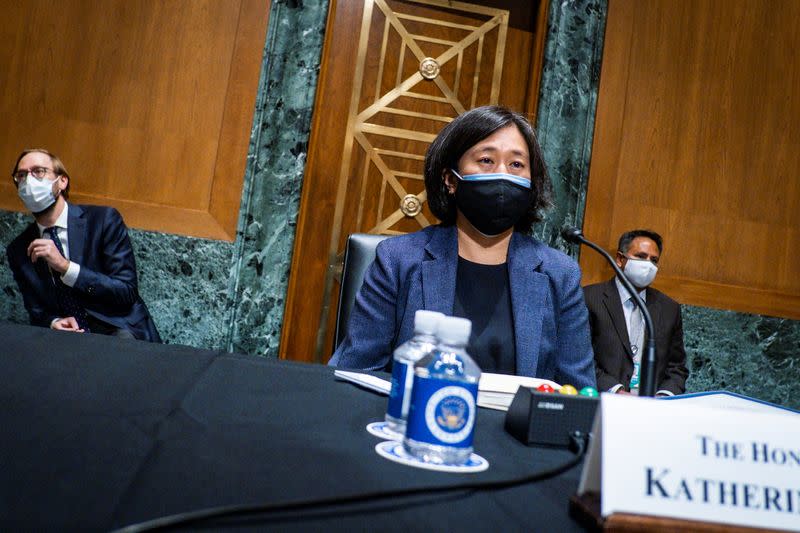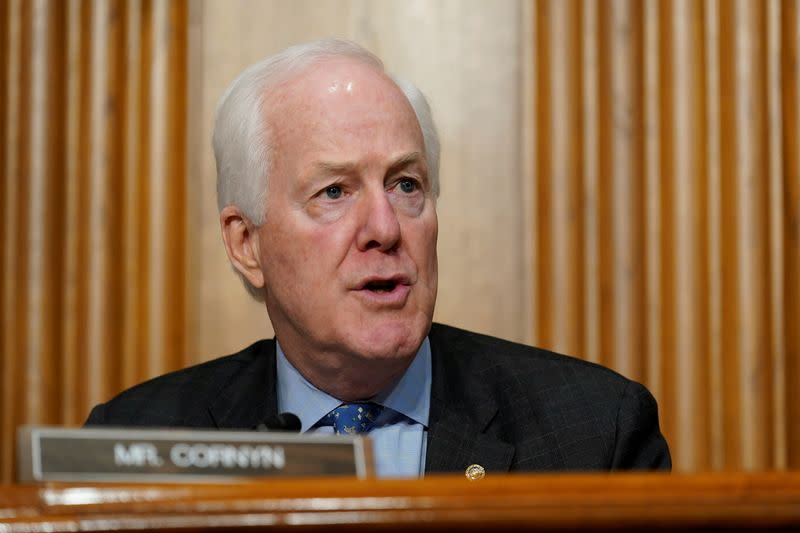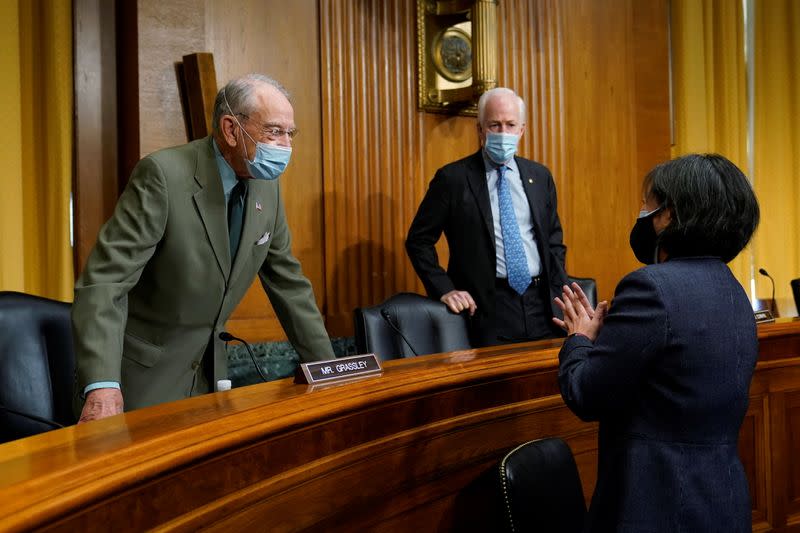U.S. trade chief: 1962 law used for metals tariffs needs modernization
By David Lawder
WASHINGTON (Reuters) -U.S. Trade Representative Katherine Tai said on Wednesday called on Congress to modernize the Cold War-era law that former President Donald Trump used to impose tariffs on imported steel and aluminum, and vowed to address longstanding labor rights problems in Mexico.
In testimony before the Senate Finance Committee, Tai said that the authorities under Section 232 of the Trade Act of 1962, were not necessarily well-suited to the need to protect U.S. steelmakers from foreign competition and this has "roiled" the U.S. economy and heightened tensions with trading partners.
Section 232 allows tariffs on goods deemed important to U.S. national security. Tai said the Trump administration and her predecessor, Robert Lighthizer, "did the best that they could, given the tools that we have existing on the books."
Today's problem in the steel and aluminum industry are caused largely by subsidized excess production capacity in China, and new trade law tools are needed to deal with those challenges.
"What I would propose is that we need 2021 tools for addressing the 2021 challenges we have, rather than relying on 1962 tools and retrofitting them for the challenges we have now," Tai said, adding that the Finance Committee could help level the playing field for new workers.
Tai did not discuss specific changes to the statute. The European Union is threatening to double tariffs on Harley-Davidson motorcycles, American made whiskey and power boats to 50% on June 1 if a transatlantic dispute over the steel and aluminum tariffs is not resolved by then.
Tai said she was having "constructive discussions" with the EU and Britain to address excess capacity in the steel and aluminum sectors, as well as on resolving a long-running Boeing-Airbus subsidy dispute.
"These talks will take time, but I believe a resolution is possible and worth pursuing," Tai said in prepared remarks.
Tai said she will use the new factory-specific labor enforcement provisions of the U.S.-Mexico-Canada Agreement on trade to address longstanding labor issues in Mexico.
USTR earlier on Wednesday requested that the Mexican government review allegations that worker rights were denied in a union vote at a General Motors truck plant in Mexico under the USMCA's "rapid response" labor enforcement provisions.
"This use of the rapid response mechanism demonstrates that we will act when workers in certain facilities are denied their rights under laws necessary to fulfill Mexico’s labor obligations," Tai said.
She said the USMCA, which last year replaced the 1994 North American Free Trade Agreement, has "the most comprehensive, enforceable labor and environmental standards of any U.S. trade agreement".
Tai defended her decision to engage in World Trade Organization negotiations on a waiver of intellectual property rights for COVID-19 vaccines, saying this could make drug companies "heroes".
(Reporting by David Lawder; editing by Philippa Fletcher and Marguerita Choy)

 Yahoo Sports
Yahoo Sports 








